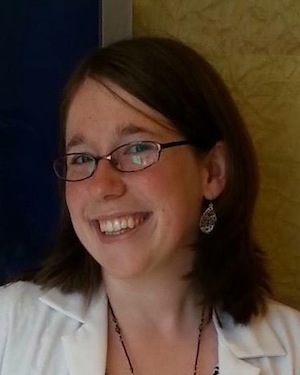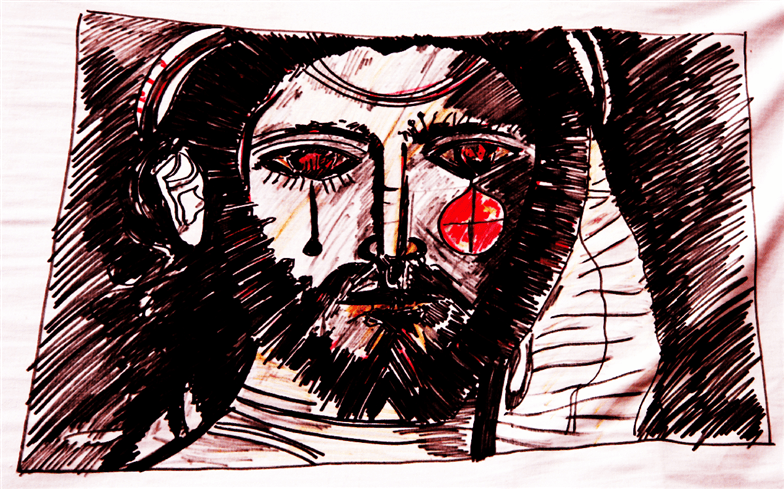An Opening Editorial in Q & A Form
September 28, 2011 by Chris Iosso[wpcol_1half id=”” class=”” style=””]
Why a new internet journal devoted to social witness and to social justice?
Every community communicates by some method; now is the time of the internet. The “weightier matters of the law: justice, mercy, and faith” are matters of life and death on which the church—and all serious seekers–must speak and act.
Aren’t there enough blogs already, and isn’t your subject matter too serious for “social media”?
The internet reader does not live by blog alone, but by aggregations and distillations, and sometimes serious content. Blogs show the desire to connect and to comment; this will be a place for community and critical thinking on matters of church and society, of Christianity and crisis, of reconciliation, of social action and social issues—to echo timely journals of the past.
Is this journal really new, then, or is Unbound simply the old Church & Society carried on in a new medium?
We do claim to continue the service to social ministry that was the heart of Church & Society, and its predecessors, The Amethyst, Moral Welfare, and Social Progress. Yet the name change recognizes a reality. While thoughtful 4-12 page articles will be organized quarterly around a theme as in the past, the internet is a new and more immediate form, instantly accessible to people around the world, and hence it enables us to nurture new forms of community. The theme -based quarterly “issues” will be the “content pole” of the journal; the daily and weekly interaction and debate will be the “community pole.”
Why now, after more than four years since Church & Society’s last publication in Fall of 2006?
It will be the readers’ job to see whether there is a place for an open-hearted, ecumenically-minded, and change-oriented journal. Certainly some older print magazines have forged helpful identities and serve vital constituencies among mainline and evangelical Christians, mixing in cultural commentary and “spiritual” material. Some denominational magazines have also developed on-line presences; other church offices provide regular e-letters with links to timely statements and invitations. Clearly, however, we do not think any journal has taken Church & Society’s place, much less tried to re-think it for the grim challenges, generational transition and political deadlock of today.
So what are some of these challenges?
Empire was a word used by both the second Bush administration and the Accra Confession of the World Alliance of Reformed Churches in 2004. Two wars have become occupations since 9/11/01 and continue without clear rationale (though Iraq winds down, the Pentagon seeks to keep thousands of contractors and trainers in country). Those who have proclaimed an “end of empire” have seen an Obama administration unable to change much of the nation’s economically—and environmentally—unsustainable course. The “Arab Spring” of democratic longing continues to be resisted in many places. Racial and gender injustice persist and are still invisible to many. Anti-regulatory globalization continues to magnify the gulfs between rich and poor within and among many nations; unemployment and inequality soar in the United States. Politically, the US Supreme Court’s support for unlimited corporate spending means a harder environment for the witness of all non-profit entities, including the churches. This means polarization for the sake of profit and continued concentration of power within a world increasingly fighting over natural resources and reacting to climate change-related disasters.
[/wpcol_1half] [wpcol_1half_end id=”” class=”” style=””]
What can any mere internet journal do in such an environment?
Be faithful. Build the base. Make the connections. Offer practical models and real examples. Be strategic thinkers and linkers. Feed the consciences that thirst for justice in a de-moralized culture. Lift up the prophets. Follow the Spirit who heals the suffering and re-enchants the world.
Is this still a Christian journal?
“Can’t start a fire without a spark;” Bruce Springsteen.
“Whoever is near to me is near to the fire;” Jesus in The Gospel of Thomas (82).
“For as the lightning comes from the east and flashes as far as the west, so will be the coming of the Son of Man, (the Human One);” Matthew 24:27.
Jesus is our spark.
Why then does this journal lead with justice?
Justice and love are foundational to Jesus’ message. We believe they are part of the good news; indeed, that for young people of all traditions and none, justice and truth are the integrity in the church’s message as much as love is its heart.
What about disagreement, controversy, conflict?
The glow of the internet lights up computer screens from West to East, and yet it is a cool medium, despite the heat of some bloggers’ words. Clarity will always mean some measure of disagreement, but we will never seek controversy for its own sake. Every tradition is an on-going conversation. And as for conflict, we adapt a line from progressive Evangelical Greg Boyd: no one with flesh and blood is your final enemy.
Who’s your “daddy?”(and mommy!)
Our editorial policy is approved by the Advisory Committee on Social Witness Policy, a committee of the General Assembly of the Presbyterian Church (U.S.A.) lodged within the Compassion, Peace, and Justice ministry area of the General Assembly Mission Council. We are guided by the policies of the General Assembly and will provide many links to the church’s main website and its partners, both in the US and overseas. Our board of advisors will help interpret the editorial policy and provide contributions; articles for the theme oriented issues will be reviewed by the editors and usually a lead editor for a particular subject area.
Why the name change?
How many 20-somethings start their internet searches with, “church?”
Chris Iosso, Coordinator of ACSWP and Editor of Unbound, is only now graduating to cyberspace, having been ordained (Elizabeth Presbytery), inducted into General Assembly Mission Council service in NYC, and educated (Johns Hopkins—BA, Princeton—Mdiv, and Union—PhD, Seminaries) in the print dispensation. After serving as a pastor and parent of three in Westchester County, NY, he returned to the new GAMC as Coordinator of ACSWP. He is married to pastor Robin Hogle. Beyond books, he enjoys running, kayaking and soccer.
[/wpcol_1half_end]






Unbound Social